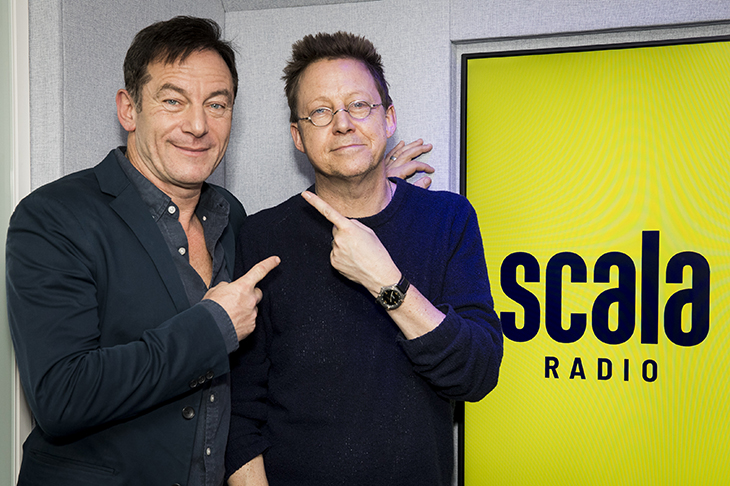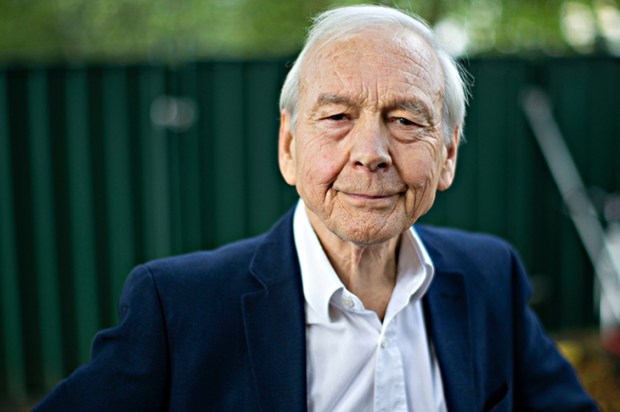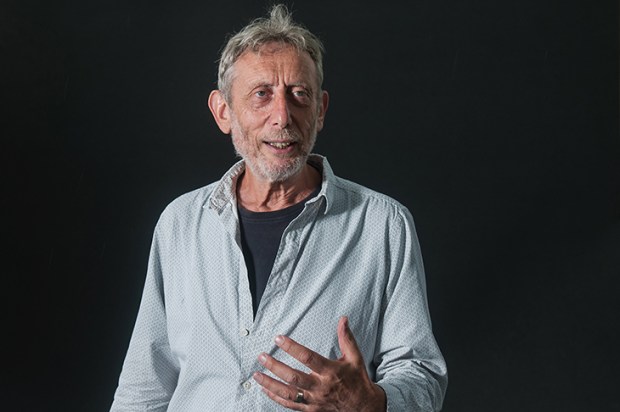It’s not surprising given the way that electronic communication has taken over so much of our daily business, minimising human contact wherever possible, that podcasting (or what might be called aural blogging) has taken off in such a big way, anything from Griefcast to Love + Radio via The Breakup Monologues and To the Woman. We crave the sound of a human voice talking to us and no one else, and even better when it comes in disembodied form, stripped of all physical expression. This intense aural connection has been radio’s chief selling point since the 1920s, technology enhancing human interaction, the need to tell and listen to stories. Don Warrington, for instance, really drew me in to his narration of Claire Adam’s novel, Golden Child, for Radio 4 (directed by Justine Willett).
His voice is not, you might think, one that would immediately draw you in. Gravelly and deep, it’s if anything rather harsh, pushing away rather than drawing in. But from the very first words of this adaptation (by Sara Davies) I was taken straight into the dangerous atmosphere on the island of Trinidad as Paul has gone missing. It’s feared the teenager has been kidnapped by the same gunmen who had recently held his family hostage. Once Warrington began telling us Paul’s story, it was impossible to walk away and stop listening. My teeth have never been so clean. Golden Child was broadcast in what used to be the Book at Bedtime slot, the title now dropped because the readings have to be repeated during the day.
Meera Syal, too, has a voice that makes an immediate connection with the listener. It’s not just her tone, warm and easy on the ear, it’s also her timing, never afraid to create a pause, giving the listener the opportunity to become part of the thread of thought, the telling. Syal starred in the latest series of Scott Cherry’s detective drama for Radio 4, A Small Town Murder (directed by Clive Brill). These week-long dramas never fail to draw me in; partly it’s Syal’s voice but it’s also because the production is so finely balanced, with music that just segues into the words and out again rather than dominating the soundscape. Syal plays a family liaison officer with an investigative team who are often involved in gruesome murder cases (this latest had a severed head thrown at a front door in a plastic bag). But, unlike so many TV series, the violence is secondary to what’s going on between the suspects (and in this case the detectives, too), the unravelling of ordinary lives.
Over on Scala Radio its bosses are hoping that the familiarity of voices such as Simon Mayo’s or Charles Nove’s will tempt us away from Classic FM (fantastically successful with its just under 5.5 million listeners) and Radio 3 (struggling to maintain its 2 million) or even perhaps Radio 2 whose 15 million listeners is a controller’s dream. On the first morning Mayo sounded incredibly nervous, his throat really dry, which seemed surprising given his 36 years of experience behind the mike. And the constant umming could have been irritating except that it was impossible not to want Mayo to succeed because of his constant awareness of his listeners, urging them to get in touch, not out of desperation but from a genuine desire to know what they want to hear him play. He also, as has been noted, cocked a snook at his former bosses at Radio 2 by referencing both Alan Freeman and Jo Whiley in the first five minutes, as if to say that Scala, with its ‘Classical Music for Modern Life’ mission, is more of a threat to 2 than to Classic or 3.
There’s money behind Scala and a clear sense of where its appeal lies — as an escape from present realities, like a box of Quality Street rather than 85 per cent cocoa. (As yet there are fewer ads than on Classic FM, which gives it a freer, more flowing feel.) It’s undemanding, which in these times is very refreshing. Bizet, Dvorak, Mozart, Chopin, a touch of Beethoven and Debussy fill the playlist, but there’s lots of variety and every so often a crossover surprise such as the Vitamin String Quartet’s version of Daft Punk’s ‘Get Lucky’, or ‘Penny Lane’ on classical guitar. Nice.
Radio 4 has its own style of escape from the world in its annual series of Lent Talks (produced by Dan Tierney), using the liturgical season as an opportunity to reflect on something spiritual. This year the six reflections are focusing on that very topical sensation, uncertainty. St Thomas, for instance, often accused of being the doubter, the disciple who refused to just believe. The psychotherapist and former priest Dr Mark Vernon put us straight on that, arguing passionately that to banish doubt is ‘false and deluded’.
‘Let’s stay here for a moment,’ said Vernon. ‘Let’s try to understand Thomas and his anxiety.’ To be lost and frightened, not to know the way ahead, is fundamental to any transformative experience in life, he said. ‘Welcome doubt and life will brilliantly grow.’ I hope he’s right.
Got something to add? Join the discussion and comment below.
Get 10 issues for just $10
Subscribe to The Spectator Australia today for the next 10 magazine issues, plus full online access, for just $10.
You might disagree with half of it, but you’ll enjoy reading all of it. Try your first month for free, then just $2 a week for the remainder of your first year.














Comments
Don't miss out
Join the conversation with other Spectator Australia readers. Subscribe to leave a comment.
SUBSCRIBEAlready a subscriber? Log in